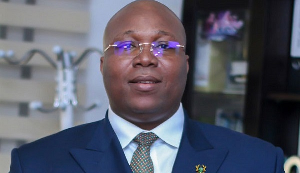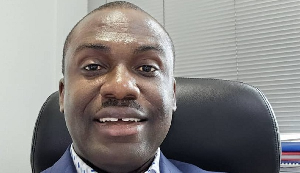The Government is poised to sanitise the local government system by ensuring that there is effective institutional coordination and harmonisation, Hajia Alima Mahama, the Minister of Local Government and Rural Development, has said.
She said there would be effective coordination of funding and development partner support as well as deepening of the platform for policy coordination and harmonisation.
Hajia Mahama, who was opening a five-day orientation programme for Metropolitan, Municipal and District Chief Executives (MMDCEs) on Monday, said: “The Ministry has also initiated processes leading to the rationalisation of funding and support to decentralisation in Ghana through a comprehensive review of the existing arrangements”.
She said the Ministry was also collaborating with other key ministries such as the Ministry for Inner Cities and Zongo Development, the Ministry of Sanitation and Water Resources and the Regional Development and Integration Ministry to ensure the realisation of government’s vision for the country.
The orientation programme, which is being attended by 200 MMDCEs from all over the country, is designed to inculcate in them the requisite knowledge, skills and the right to lead decentralised governance effectively.
It seeks to acquaint MMDCEs on the demands of the District Chief Executive and to equip them with the requisite knowledge, skills and attitudes necessary for effective transformational leadership at the local level.
Hajia Mahama said to ensure effective delivery and an improved performance monitoring system rolled-out by the government, all MMDCEs would receive reporting templates and formats to guide them in submitting periodic reports on their activities as per a performance contract to be signed for continuous monitoring.
She said the Ministry had initiated a process of reviewing the current National Policy of Decentralisation to accommodate the new reforms and policy directions.
Hajia Mahama said the Ministry had constituted a team to come up with proposals in consultation with key stakeholders in the local government sector to review and reconcile all enabling legal framework hampering the true implementation of effective decentralisation in Ghana.
She said notable among the laws to be reviewed was the recently passed Local Government Act 936 of 2016, the Local Government Financial Memoranda of 2004, and the Model Standing Orders for Metropolitan, Municipal and District Assemblies.
“The Ministry has also constituted a team to work towards reviewing all the laws and policies that inhibit the election of MMDCEs.
“The Ministry has finalised a manual on fee fixing and property rates to enhance the resource mobilisation capacities of MMDAs,” she noted.
Hajia Mahama said a major operational problem affecting district assemblies in particular and local governance, in general, was the non-functioning of the sub-district structures.
“These sub-structures namely Urban/Town/Zonal Councils and the Unit Committee’s are to assist the assemblies in the performance of their functions at the community level,” she said.
She said: “Sadly, in most of our District Assemblies these sub-structures are either not in place or if they are, they are not functioning effectively in contributing to the development process as envisioned in the decentralised planning process, which must begin from the community level.
Hajia Mahama said: “We are determined to operationalise and strengthen the sub-structures. We will need the full support of all regional coordinating directors to ensure that this becomes a reality as we consider them as bedrock of our Local Government System and a platform for reaching majority of our people at the local level.”
She said revenue generation was no doubt a key component of assemblies’ activities adding; “sadly, most assemblies are not doing well in this area”.
The Minister said there seemed to be an emerging trend whereby some assemblies were increasingly becoming over-reliant on the District Assemblies Common Fund.
“We want this trend reversed. Assemblies must develop revenue mobilisation mechanisms for increased revenue mobilisation, ” she said.
General News of Tuesday, 4 July 2017
Source: GNA













